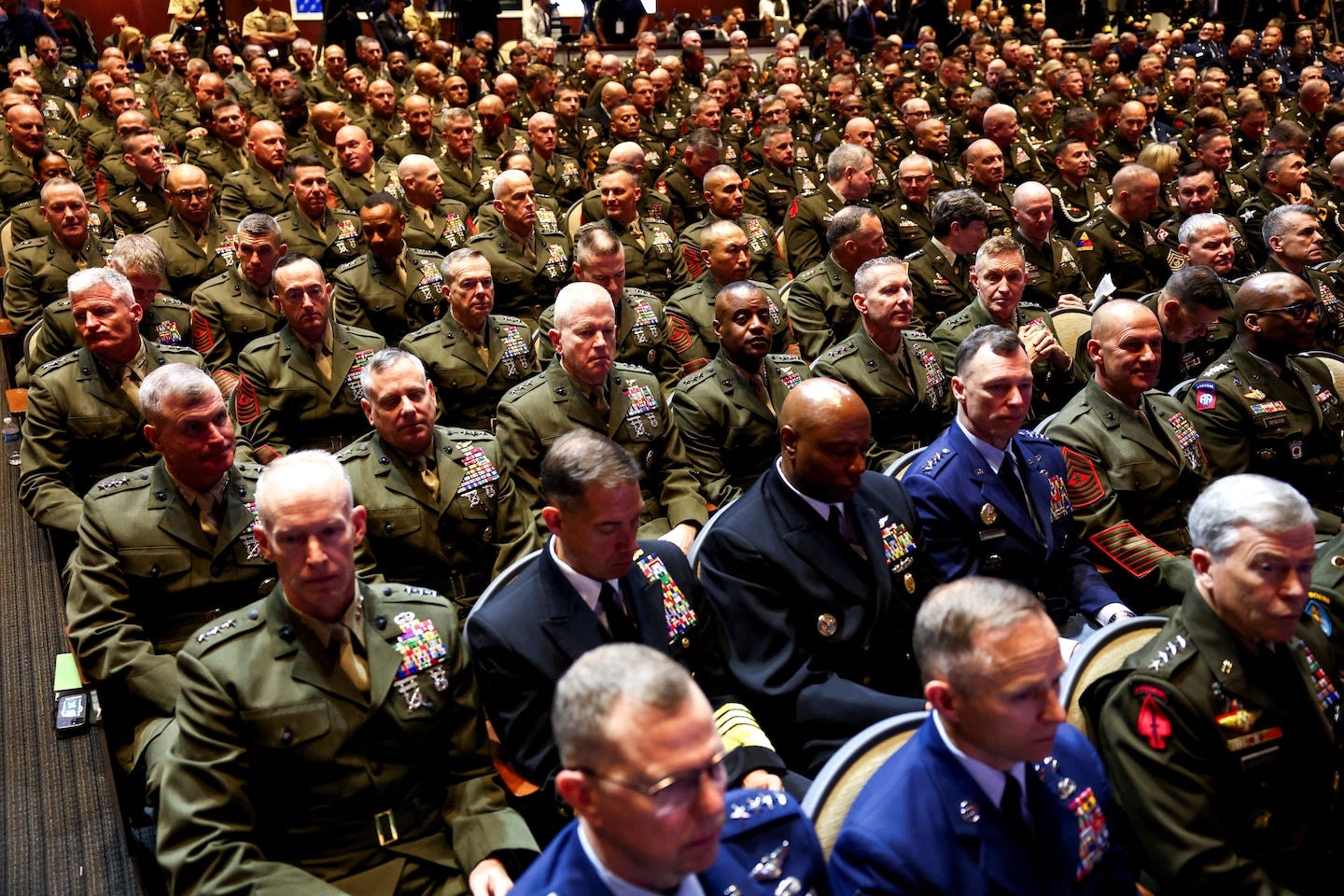This story is about the obsession with grooming standards of some officers in the army. The obsession dates back decades, and it has a history that echoes the history of this country.
Because I reported a day late to the Infantry Officer Basic Course at Fort Benning, Georgia, in August of 1969, my assigned place in the alphabetically arranged company formation was to the left of a classmate of mine, Alex Zupsich, the last man in the last rank of the company. I didn’t know Alex at West Point; he was in another regiment and lived all the way across the area of barracks from where I lived.
I had heard of Zupsich, however. He was tall and gangly and was said to have been “blue-darted” by upperclassmen during our Plebe Year. Blue darting was when a group of cadets decided run a cadet out of the academy by ranking him at the bottom of the company in “aptitude for the service” using special, optional evaluations, the form for which was printed on light blue paper.
Zupsich survived an officers’ board that heard his case, and four years later graduated in the top half of the class academically. Standing next to Zupsich in ranks and marching next to him to class and training exercises, I quickly got to know him. He was jovial and kind of goofy and not terribly well turned out militarily. His uniforms didn’t fit him very well, and he marched with an awkward, halting gait.
During his leave after graduation, Zupsich had married a girl back home in Illinois. I say “girl,” because she was 18 and just out of high school. He told me he was very happy having found someone to marry, because he hadn’t gone on many dates as a cadet. Incredibly, he attributed his increased attractiveness to the opposite sex to the mustache he had begun to grow the day after we graduated in June.
Zupsich was one of those guys with what they call a thick beard. As a cadet, he had to shave twice a day to avoid getting written up for demerits for having failed to shave. His mustache grew quickly. By August, it was a luxuriant thing on his upper lip, black and thick and shiny in the sunlight. He was very proud of his mustache and said his new wife loved it.
I was standing next to Zupsich during our formation before dismissal for the day when two captains assigned to be our “platoon advisers” approached him. One of them pointed a finger at his mustache and gave Zupsich an order to cut it off by first formation the next morning. The two captains walked away. Zup, as we called him, said he had looked it up in the regulations and found that soldiers in the army were allowed to have a mustache so long as it did not extend past the corners of the mouth. Zup’s didn’t, but because he had a wide upper lip, the thing looked enormous. He asked me what I would do, if I were him. I told him that he had the legal right to a mustache, and if he liked it, he should keep it.
The next morning, the two captains showed up and confronted Zup and asked why he hadn’t shaved his mustache. Zup told them the regulations allowed mustaches, and his wasn’t wider than the corners of his mouth, so it was legal. They ordered him to cut it off anyway. When Zupsich refused, they told him he was assigned as student platoon leader, and he would be marching the platoon to class.
Zup wasn’t very good at giving commands when marching. His voice was high-pitched and his commands were not well timed and executed, causing the platoon to overshoot tight turns on sidewalks and often come to a halt in the wrong position. The captains hazed him mercilessly that first day. During a break between classes that morning, they ordered Zup to face a big tree and practice giving marching commands at top volume to the tree. They did it again that afternoon and made him stay after close of business and practice giving commands to a wall of the barracks. All of this in front of the whole company.
That evening, I was having a beer after work with another of my classmates, Rob Leslie, and we were talking about what a couple of assholes the captains were. With a smile, Leslie began caressing his upper lip and said, “You know what, Truscott? My upper lip is feeling a little chilly. Do you think a mustache would warm it up?” I laughed and told him my naked upper lip was cold, too. The next morning, each of us shaved our faces except for our upper lips and began the process of growing our own mustaches. During lunch that day, as Zup gave commands to a nearby tree on orders from the captain, we told some of the other guys that we were growing mustaches in solidarity with him.
The word spread. By the end of the week, most of the guys in the company were sporting nascent growths above their lips. A few days later, every guy in the company had begun growing a mustache.
The two captains relieved Zup of his platoon leader duties and assigned me the job. To their disappointment, I was better at marching the platoon than Zup had been, and I began to make up marching cadences that I called out as we marched to every class, with the platoon loudly singing out the refrains. The cadences were about mustaches, every one of them. Then I added in the captains by name:
Captain [Smith] his momma said
Ain’t got no ‘stache, his lip is dead
He drinks his beer with his left hand
That’s why he ain’t in our band
Left right, left right, say it again!
Captain [Smith] ain’t got no friends!
And so forth with more cadences using the other captain’s name. They couldn’t order me to stop, because there has long been a tradition of troops making up cadences at the expense of their superiors, who are expected to take the joke and play along.
Boy, did the captains hate that. A few weeks went by, and the captains managed to find some reason to level a disciplinary charge against Zupsich. I think they determined that he was late to physical training one morning, something like that. Zupsich was ordered to report to the battalion commander, who handed him a written order disallowing him from residing off-post, where he lived with his wife in an apartment. The order commanded him to move into the Bachelor Officer’s Quarters on the post, which would put an end to the housing allowance part of his pay that was paying for the apartment off post. The order was signed by the battalion commander.
Zup knew his mustache was behind the move. Everyone knew it. He was given to the end of the week to move. When he asked what he was supposed to tell his wife, the colonel told him to tell her move back home with her mother and father.
Zupsich went home and told his wife what had happened. She was, shall we say, a spirited young woman. She had volunteered to write and mimeograph a little newsletter for the battalion officers’ wives club, which was chaired by the battalion commander’s wife. She had produced her first newsletter, and the plan was for her to distribute it to the rest of the wives at a club tea that was to be held the next day at the officers’ club. Zup’s wife got herself decked out in an outfit proper for the tea, which in those days included gloves and a hat. The next day, she walked up to the colonel’s wife and told her that the colonel had ordered Zupsich to send her back to live with her mother and father. She rolled up newsletter and handed it to the colonel’s wife and said, “You can tell your husband I said to go to hell, and you can shove this fucking newsletter up your ass.” With that, she walked out the door.
The next morning, Zupsich was called in by the company commander and told to report to the Fort Benning commanding general because of his wife’s “behavior.” Zup knew the whole thing was about his mustache, but how could he tell that to the commanding general and make him understand what was really going on? Leslie and I told him that it wasn’t about his mustache now, it was about his wife’s right to free speech. The army might be able to tell him what he could say and what he couldn’t say in certain circumstances, but his wife wasn’t in the army, and they couldn’t punish him, or her, for what she said to another man’s wife.
That afternoon, Zupsich reported to the commanding general. He told the whole story, about being ordered to cut off his mustache, being made to give commands to a tree and a wall and a lamp post. He said his wife was outraged that the battalion commander had told him to send her home to her parents, so she did what she did. She was a citizen, not a soldier. She wasn’t under anyone’s command.
Amazingly, the general rescinded the order and suggested that Zupsich tell his wife to be more respectful when she talked to the wives of senior officers. Zup saluted and left the general’s office. That afternoon, he invited me over to their apartment for dinner.
The story of what had happened with Zup and his wife spread around the company. There was a lot of back slapping and congratulations, all of it witnessed by the two captains who had started the whole thing. After work a day or so later, the two captains ordered me to follow them into the barracks. They led me to a supply room on the first floor and closed the door.
I remember that room like it was yesterday. There were shelves of equipment and cleaning supplies and the like, and the overhead light was off. A shaft of late-afternoon sun shone through a window at the end of the room illuminating dust mites in the air.
One of the captains ordered me to stand at attention. He told me if I agreed to cut my mustache, everyone would cut theirs off, and the whole thing would be behind us, with no more trouble for anyone. I refused. The other captain moved close, he was inches away from my face. “Don’t you know what’s going on here, lieutenant?” he asked. I told him no, I didn’t know what was going on, knowing that he would answer his own question.
“It’s about the niggers,” he said. “That’s why they got the mustache regulation. The niggers like to grow them thin little mustaches because it makes their women happy when they eat their nigger pussies.”
I looked from one captain to the other, taking a beat. I told them that I had a photo taken by my mother of my father holding me in his arms shortly after I was born in Japan. He was a first lieutenant, just over a year out of the Infantry School. He had a mustache. I told the two captains that if I ever heard either of them use the word “nigger” again, I would file a report with the Fort Benning inspector general for racial discrimination. Then I told them never to speak to me or be in my presence again. They knew if I filed that IG report, their careers would be over. They just stood there watching as I walked out of the storeroom.
A few weeks later, just before we graduated from the Infantry School, we were given our class standing for the course, with individual rankings for physical training, academics, field exercises, and leadership. The two captains had ranked me at the bottom of the class in leadership.
Every lieutenant in the company who walked across the stage at our Infantry School graduation ceremony had a mustache.






